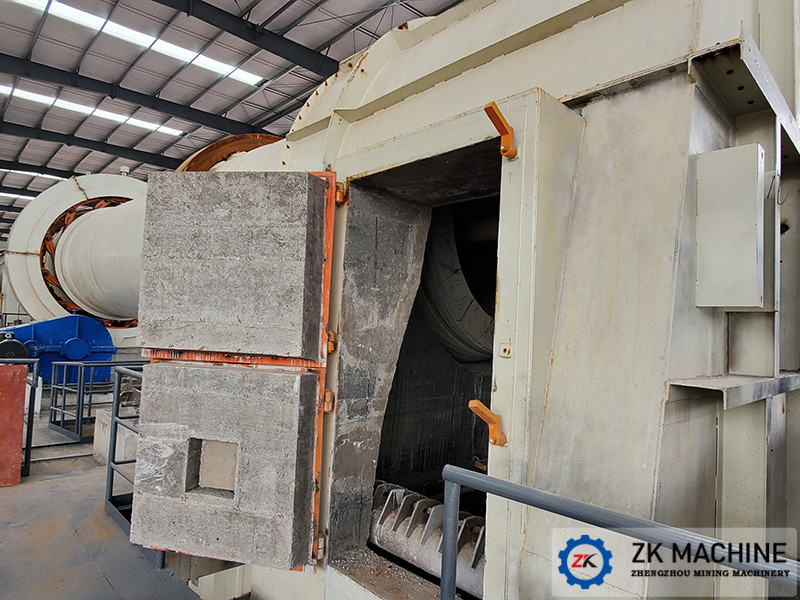During the use of the rotary kiln, daily maintenance is necessary, so that problems can be found in time, and the failure of the equipment is greatly reduced, and the service life of the equipment is extended.
1. The transmission device and supporting device of the rotary kiln should be checked regularly, whether the motor and reducer have abnormal noise, abnormal vibration and abnormal heating, whether the rotation of the bearing is normal, whether the connection position is loose, and if there is a problem, handle it in time.
.jpg)
2. Regularly check the various lubrication points of the equipment, such as pinion gear and large gear, bearing seats, etc. Whether the oil amount is sufficient, whether there is oil leakage or blockage, to ensure the smooth rotation of the equipment and reduce the wear of the working surface of the spare parts.
3. Pay attention to the upward and downward movement of the cylinder of the rotary kiln. If there is any abnormality, it should be adjusted in time to prevent parts from being damaged by abnormal impact.
4. Regularly check the cooling parts of the rotary kiln, whether the water amount is sufficient, whether the water pipes are unobstructed, and good cooling can also avoid partial high temperature failures and extend the working life of parts.

5. Regularly check the supporting roller, damper, and tyre. The normal rotation of the rotary kiln is closely related to these components. After long-term work, you should pay attention to whether these components have cracks and deformations that are visible to the naked eye. If they are damaged, they must be repaired or replaced in time.
6. Pay attention to the temperature inside the cylinder when the rotary kiln is working. Temperature is an important factor to ensure the quality of the product. The temperature inside the cylinder is detected through the temperature measurement hole on the device. Too high temperature will cause deformation and damage of the device. It will also affect the calcination of the material, and too low temperature will not play a role in the calcination of the material. Therefore, in daily use, the temperature in the rotary kiln should be within a normal range, and if there is any abnormality, it should be dealt with in time.



















.jpg)

